First recommended by the American Library Association in 1965, Banned Books Week is an annual literary event that highlights literary freedom. The initiative was officially launched nearly twenty years later, in 1982. While the subject of banned books seems to be on the rise, it’s hardly a recent phenomenon. In fact, the first banned book in the United States pre-dates the Declaration of Independence.
There are many ways to celebrate Banned Books Week, and one of our favorites is by starting a Banned Book Club. Below are ten banned books that would make for especially good book club picks—pick one, grab a few friends, and get reading!

Read These Banned Books
Why not pick up a book that will give you dozens of banned book reading recommendations? Designed as a year-long challenge, this journal includes 52 classic and modern banned book recommendations. The guide also includes reasons why each selection was banned, plus journal space with writing prompts. Sounds like the perfect way to kick off your book club discussion and record everyone’s reactions!
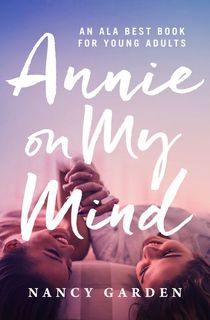
Annie on My Mind
First published in 1982, this groundbreaking novel is centered around two young women on a journey to finding themselves, and one another. Liza is an unsure teenager studying at Foster Academy, a heavily religious institution. She has dreams of being an architect and studying at MIT. While spending an afternoon at the Metropolitan Museum of Art, another teen named Annie.
The two quickly form what will be an enduring friendship, but they soon realize that there’s something blossoming between them beneath the surface. Annie On My Mind was one of the first LGBTQIA+ Young Adult novels to have a happy ending for its protagonists. The book was challenged and banned for the portrayal of a same-sex relationship.
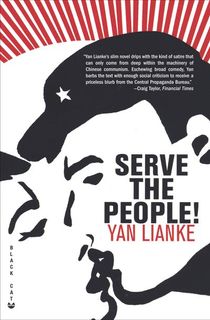
Serve the People!
Set during Mao’s Cultural Revolution, Lianke’s satirical novel examines the ways in which Mao’s propaganda was internalized by people. The novel centers around a forbidden affair between the wife of a Division Commander and one of her servants. Liu Lian uses Mao’s propaganda to her advantage, using it to guide her household. Liu starts an affair with Wu Duwan.
Whenever Liu wants Wu’s attention, she takes the wooden Serve the People! sign and leaves it somewhere that will catch his attention. It’s his direction to come and serve the people—well, to serve her. The book was banned in China for its sexual content and subversive nature.
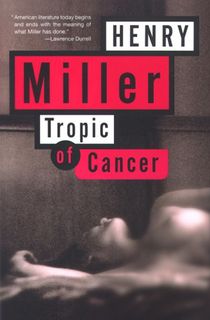
Tropic of Cancer
This semi-autobiographical memoir is about Miller’s life in Paris during the 1920s and 30s. Miller’s time there was far from the often idyllic portraits drawn of the Roaring Twenties and the Lost Generation. He struggled in the wake of his separation from his wife, as well as the realities of poverty and homelessness while in Paris.
Miller’s book was banned in the United States in 1938, claiming that it, “dealt too explicitly with his sexual adventures and challenged models of sexual morality”. The ban went so far as to keep all of Miller’s works out of the country. It wasn’t until 1961 that the ban on Miller’s writing was lifted. Even after that, it was another three years before Tropic of Cancer was ruled by the Supreme Court as protected and non-obscene.
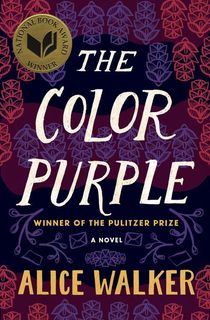
The Color Purple
This novel revolves around Celie, a young woman growing up in rural Georgia during the early twentieth century. Separated from her sister and abused from a young age by her father, Celie is isolated and uneducated. She copes with her life’s trials by writing letters. She writes to God, and then to her sister, Nettie. In these letters, Celie documents and reflects on the pain that she endures.
Celie finds solace in her friendships with other women, such as a defiant woman named Sofia, and a minister’s wife, Corrine. Walker’s book has left a lasting impact on African American and American literature alike, and has been adapted into both a film and a musical. The book was banned several times for various reasons, including its discussions and depictions of abuse, incest, profanity, violence, and sexual content, among other things.
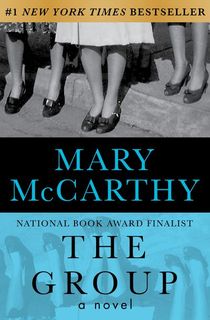
The Group
First published in 1963, Mary McCarthy’s book follows the lives of eight friends after they graduate from Vassar. Kay, Mary, Dottie, Elinor, Polly, Priss, Helena, and Libby each have their own unique views and skills as they go out into the world. Kay is the first of them to marry, just a week after their graduation in 1933.
From there, they go their separate ways. Many find love. They engage in relationships that society may deem scandalous. Despite their disparate paths, they never lose sight of one another. McCarthy’s book was banned in Australia, Italy, and Ireland. The basis of its banning was its supposed flouting of public morality, as it discusses extramarital affairs, contraception and birth control, and psychoanalysis.
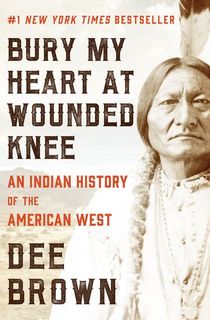
Bury My Heart at Wounded Knee
The idea of the American Old West is one that often has a filmic, dreamlike quality. For many, it brings saloons, stagecoaches, and shootouts at the O.K. Corral to mind. For the Native American population, how the West was won is far from a filmic ideal. Published in 1970, Bury My Heart at Wounded Knee is a nonfiction account of Native American History in the Old West that shines a harsh light on the elimination and removal of Native peoples from the frontier.
Using firsthand accounts from members of several tribes, including the Cheyenne, Dakota, Sioux, and Ute, Dee Brown documents the hardships faced by Native Americans, and tells the true story of how the West was won. The book was banned in Wisconsin in 1974 on the grounds that it was “Anti-American,” as well as for its violent content.
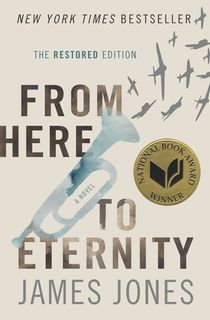
From Here to Eternity
James Jones’ original work was heavily censored before it was even put out by the publishing house. Loosely based on Jones’ own experiences in the army, From Here to Eternity depicts the lives of two soldiers stationed in Hawaii in 1941. Both Private Robert E. Lee Prewitt and First Sergeant Milton Anthony Warden find themselves making what may be potentially disastrous choices for their careers in the army.
Prewitt is a passionate bugler, and an excellent boxer, but refuses to join the company’s boxing team. Warden chooses to have a risky affair with a commanding officer’s wife. Jones examines his experience with the army's love of uniformity, and the supposed threat of individuality. First published in 1951, the book censored and cut many of the original manuscript’s profane content, as well as numerous references to homosexuality.
An uncensored version was found in 1990. The book, as well as the 1953 film adaptation, were banned in various places for frank content about the military, and negative depictions of the army.

To Kill a Mockingbird
Set in the town of Maycomb, Alabama in the mid-thirties, this well-known and well-loved literary work follows Jean Louise “Scout” Finch. Her father, Atticus, is appointed to defend a young African American man, who’s been accused of raping a young white woman. This case causes a stir in the town, shaking up the lives of the Finch family, and challenging the way that Scout looks at her community.
This book has been challenged and banned in several states. The most common reasons for these challenges are adult themes, violence, and racial slurs.

Brave New World
As much a hallmark of speculative fiction as Orwell’s 1984 and Atwood’s The Handmaid’s Tale, Aldous Huxley’s Brave New World conjures a world with frightening similarities to our own.
In this world, humans are bred into different castes. Set in London is 2540, or 632 AF (After Ford), the story follows Bernard Marx, a psychologist. When he and another citizen leave to observe the native peoples on a Savage Reservation in New Mexico, they encounter a culture that’s startlingly different from theirs. But when they bring back a man and a woman from the Savage Reservation, they unwittingly expose the problems with their own society.
Brave New World was banned in Australia, Ireland, and the United States. The reasons for its being banned were many, but Ireland was the first to ban it for “anti-religion, anti-family, and blasphemous content.”

Gender Queer
This graphic novel was written by Maia Kobabe, a nonbinary author who uses e/em/eir pronouns. Kobabe’s autobiographical work traces eir journey to self-understanding, and eir struggles with choosing the identity that suited em best. Kobabe’s relatable work speaks to readers regardless of gender and sexuality. Eir work considers the societal norms, constraints, and expectations placed on young adults.
Kobabe’s work has been challenged, banned, and restricted in several states, including Florida, Illinois, Maine, and North Carolina. The reason for these challenges have included pornographic content, as well as discussions of LGBTQIA+ identities.



